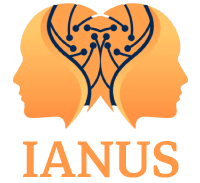The IANUS project focuses exclusively on trust in science and thus needs to develop a concept of governance of trustworthiness in science. In view of the complexity and multi-layered nature of the concept of trust in science, the various starting points regarding the governance of science shall be clarified with the help of a simple micro-, meso-, macro-level model, to which the various actors and aspects of trust in science are assigned.
The micro-level of the governance of trust in science refers to the individual researcher or research projects and the research conducted by individual researchers. The relevant question here is, what can individual researchers do to make research (more) trustworthy? The legal and regulatory aspects refer to the fundamental freedom of science, legally enshrined in laws and constitutions in many democracies. At the same time, freedom of science is not an absolute right of freedom, but in fact, the freedom of science has limits, which is particularly evident in the case of the dual-use dilemma. In all areas of science, albeit to varying degrees, there is the danger that findings may be misused by third parties for harmful purposes. This possibility of using research findings for both beneficial and harmful purposes makes it difficult in many fields to differentiate between ‘good’ and ‘bad’ research, defensive and offensive research, and research for peaceful or criminal purposes. Weighing the risk of potential misuse of research findings versus their benefits presents special challenges for the responsibility and self-control of researchers.
The meso-level of science governance addresses scientific organisations like universities, universities of applied science, research performing organisations, but also groups of research organisations, professional associations or academic associations. The relevant question here would be what actors on the meso-level can do to make research (more) trustworthy? Here, too, there are both legal and regulatory aspects as well as standards or virtues, for example, the implementation of governance structures like ombudspersons for good scientific practice and for research integrity, ethical committees, development of (binding) guidelines for researchers, codes of conducts, or institutional procedures for dealing with scientific misconduct. Besides governance structures or codified schemes for securing research integrity and preventing research misconduct, science organisations can also offer mandatory training for researchers on Research Integrity, good scientific practice, and corruption to support a culture for Research Integrity at the institutional level. Existing research claims that a bottom-up approach is needed to ensure quality and good science, rather than top-down, through everyday practices on integrity, since research is often conducted through teamwork and researchers are dependent on one another.
The macro-level of science governance refers to a systemic view of research. The question here would be what systemic actors can do to make research (more trustworthy), for example, research funders or research policy actors. The concept of research excellence and the application of too-narrow criteria and indicators of research quality or impact that distort incentives are often criticised as they create unsustainable pressures on researchers. According to this critique, narrowing criteria and indicators reduces the diversity of research missions and purposes, leading researchers to adopt similar strategic priorities or focus on lower-risk, incremental work. Furthermore, the systemic biases against those who do not meet these narrowed indicators of quality or impact or who do not conform to certain career pathways reduce the diversity and representative legitimacy of the research community. Therefore, efforts are coalescing around the idea of responsible research assessment (RRA), an umbrella term for assessment approaches that incentivise, reflect and reward the plural characteristics of high-quality research, support inclusive research cultures and are sensitive to local and particular contexts.
